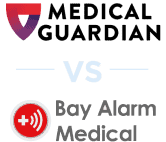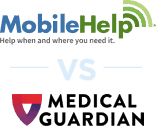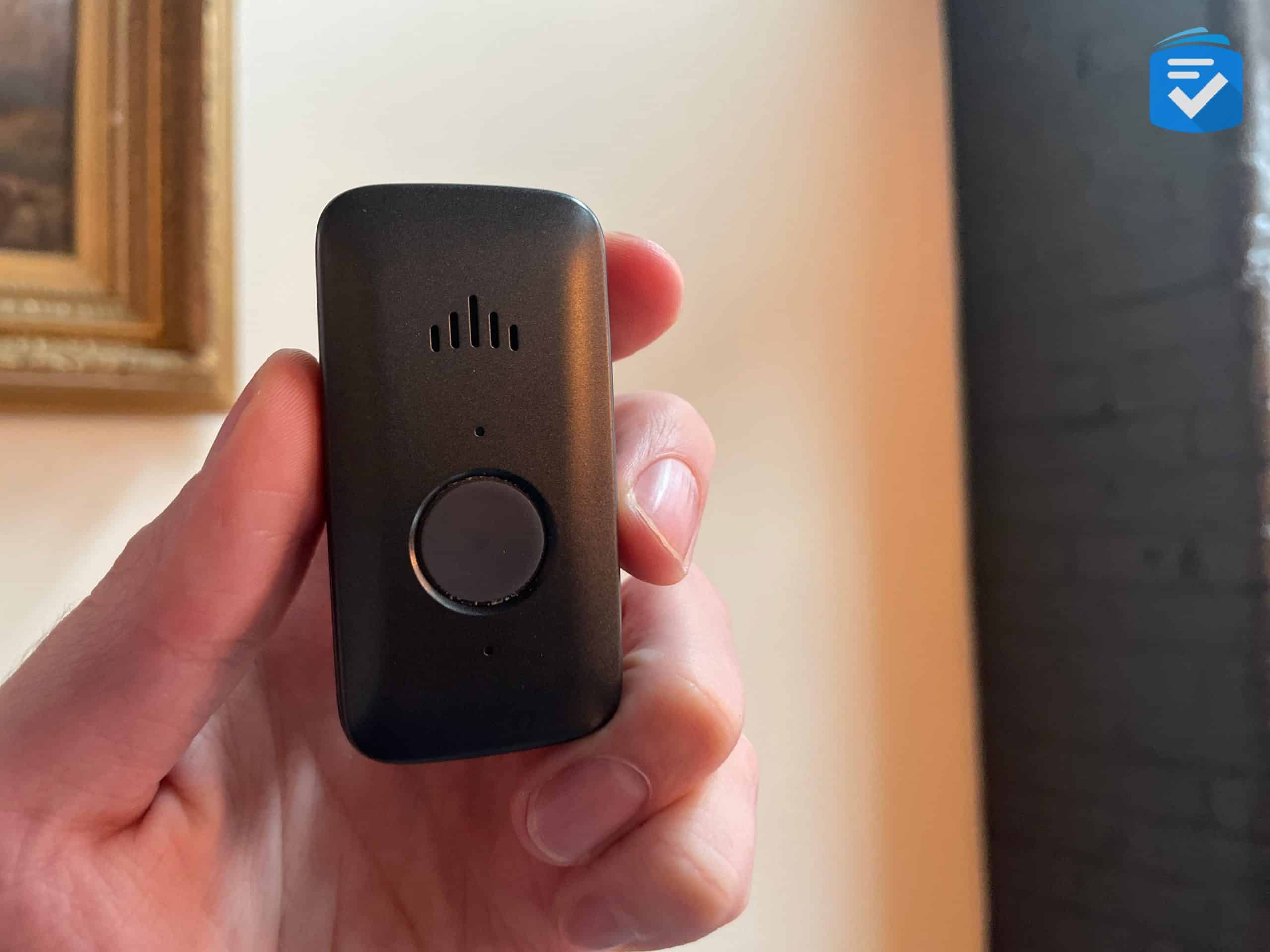
Medical Guardian Mini Guardian Review


Key Findings
- In our 10 test calls, the Mini Guardian connected us to help in an average of eight seconds, one of the fastest average response times we’ve seen in our research.
- As of 2024, the device is no longer sold by Medical Guardian; however, it’s available from retailers like Costco.
- If you want to see the latest models from Medical Guardian, then we recommend reading our MGMini Lite review and MGMini review.
FYI: Medical Guardian may be one of our favorite companies, but they’re far from the most affordable. To learn more, read our guide to the best medical alert systems.
Why Trust TheSeniorList?
Our team of caregivers, experts, and healthcare professionals conducted over 5,000 hours of in-depth research and testing. The results helped us recommend the most reliable brands and devices. In this process, our team:
- Tested 50 medical alert devices from 15 different brands.
- Surveyed 1,250 seniors and caregivers on medical alert system usage.
- Consulted with nurses, EMTs, and caregivers who are experts at caring for older adults.
- Published dozens of videos that demonstrate our medical alert system testing.
- Evaluated verified customer reviews of medical alert companies from the Better Business Bureau.
- Continues to monitor developments in the world of medical alert systems and revises our findings accordingly.
How We Tested the Mini Guardian
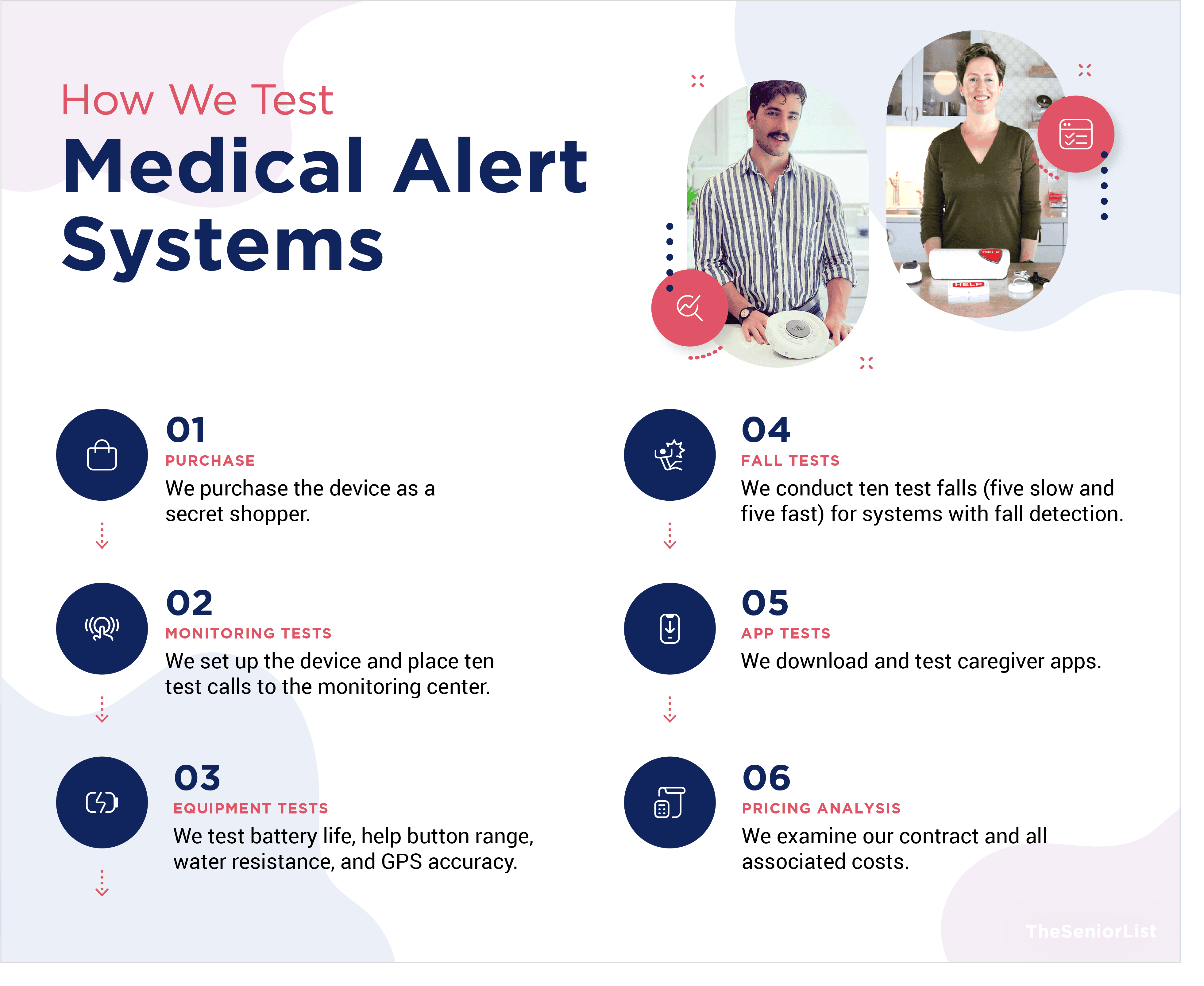
Medical Guardian currently sells five different systems (check out our Medical Guardian review to learn more about each of them). For the purposes of this review, we purchased the Mini Guardian and evaluated it using the the following criteria:
- Response times: We placed 10 test calls with the Mini Guardian and calculated the average response time.
- Ease of use: Through testing and design analysis, we ensured that the device was easy to use, particularly for those with visual impairments and manual dexterity issues.
- Customer care: We conducted extensive interactions with Medical Guardian’s customer care teams and monitoring agents, ensuring that they offered adequate support.
- Affordable pricing: We examined the costs of our Mini Guardian and compared them to similar systems from other companies.
- Flexible contracts: We read the fine print of our Medical Guardian service agreement, ensuring there were no unexpected fees or obligations.
- Extra features: Apart from conducting test calls, we also tested out the Mini Guardian’s fall detection, water-resistance, in-home range, GPS, and caregiver connectivity features.
Pros and Cons of Mini Guardian
Mini Guardian Pros
- Built-in fall detection: Some mobile medical alerts require additional pendants for fall detection; however, the Mini Guardian has this feature (as well as a speakerphone and GPS) built into it. No need for extra pendants here!
- Quick response times: As with Medical Guardian’s other systems, the Mini Guardian gave us quick access to response agents. On average, we waited eight seconds for someone to answer our calls.
- Helpful caregiver portal: With the purchase of the Mini Guardian, you’ll get free access to the MyGuardian app, which allows loved ones to track the device’s location and receive notifications when the user calls for help.
- Long battery life: The Mini Guardian lasted us five days on a single charge, making it one of the longest-lasting mobile medical alert devices we’ve tested.
- IP67 water-resistance: The Mini Guardian can be worn in the shower without getting damaged.
Mini Guardian Cons
- Higher price: While Bay Alarm Medical offers mobile systems from $30 per month, the Mini Guardian will cost me $44.95 per month. Fall detection will cost you an extra $10 per month.

What Is the Mini Guardian?
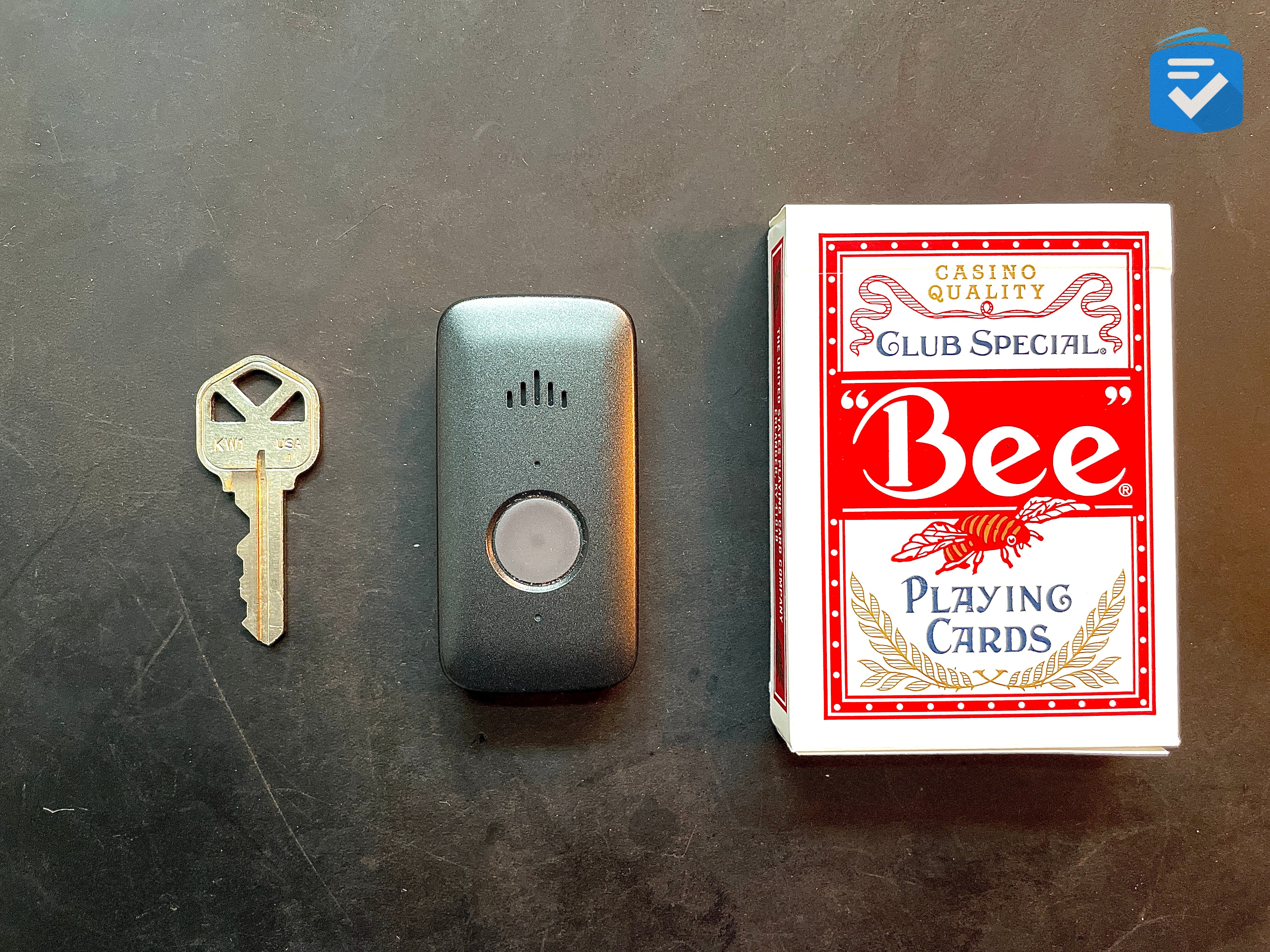
Mini Guardian is a mobile medical alert system. Much like home medical alert systems, this device features a speakerphone and a call button that, when pressed, will connect the user to an Urgent Response center.
What makes the Mini Guardian unique, however, is that the speakerphone, help button, GPS, and fall detection are all built into one compact unit. This makes it convenient to bring with you outside of the home.
In most ways, the Mini Guardian works exactly like the Active Guardian (Medical Guardian’s previous model). The main difference is size, with the Mini Guardian being roughly half the size of the Active Guardian.
Pro Tip: Curious about Medical Guardian’s other devices? Then read our full Medical Guardian review.
Using My Mini Guardian Medical Alert System
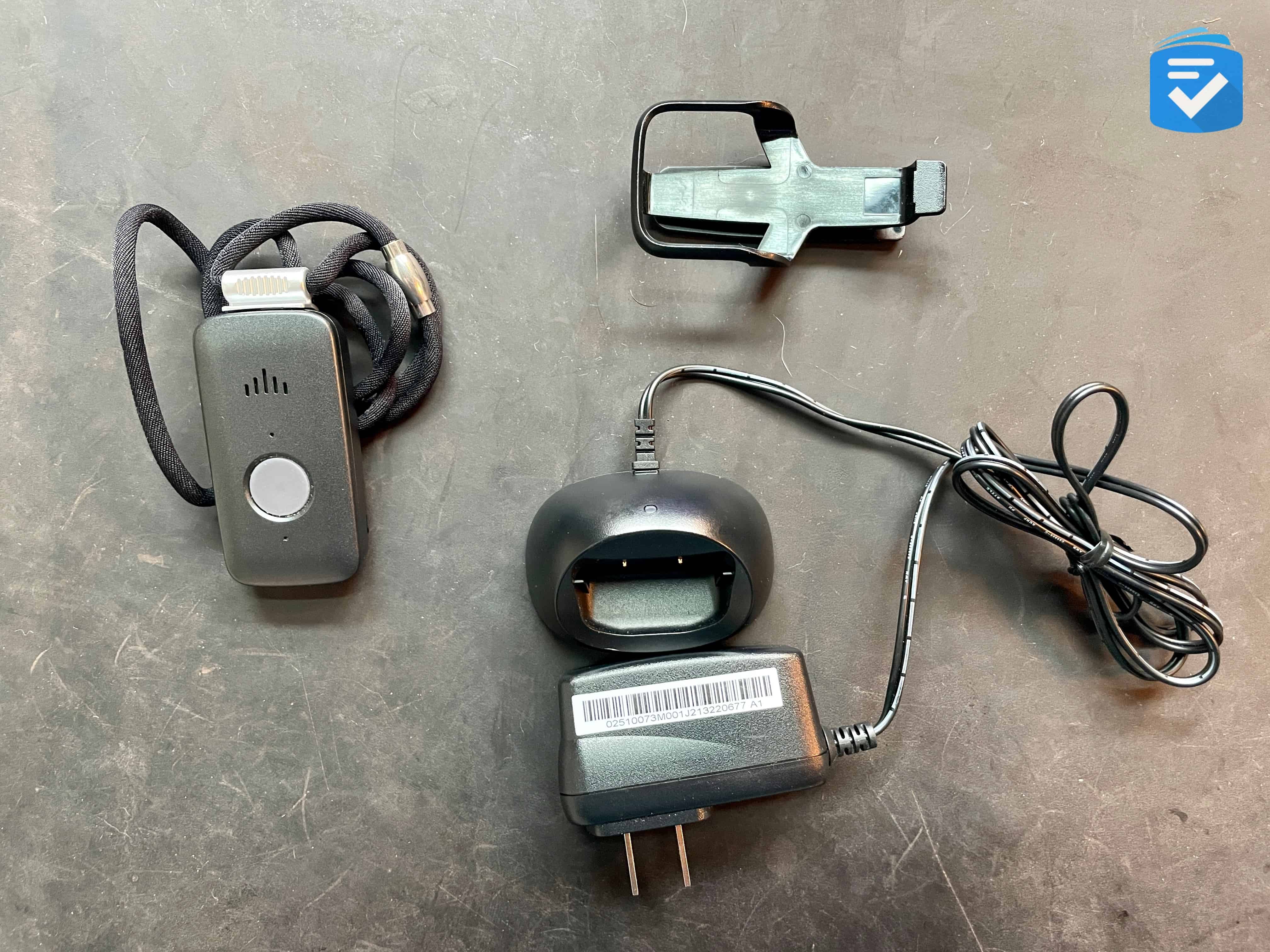
Upon receiving my Mini Guardian system, I opened the box and found the following:
- One Mini Guardian mobile unit
- One lanyard
- One belt clip
- One charging cradle
Installation
The first step to using my Mini Guardian was to charge it by placing it in the charging cradle. During this time, the unit glowed red, indicating that it was charging. After roughly three hours, the red light turned to blue, indicating that my device was fully charged.
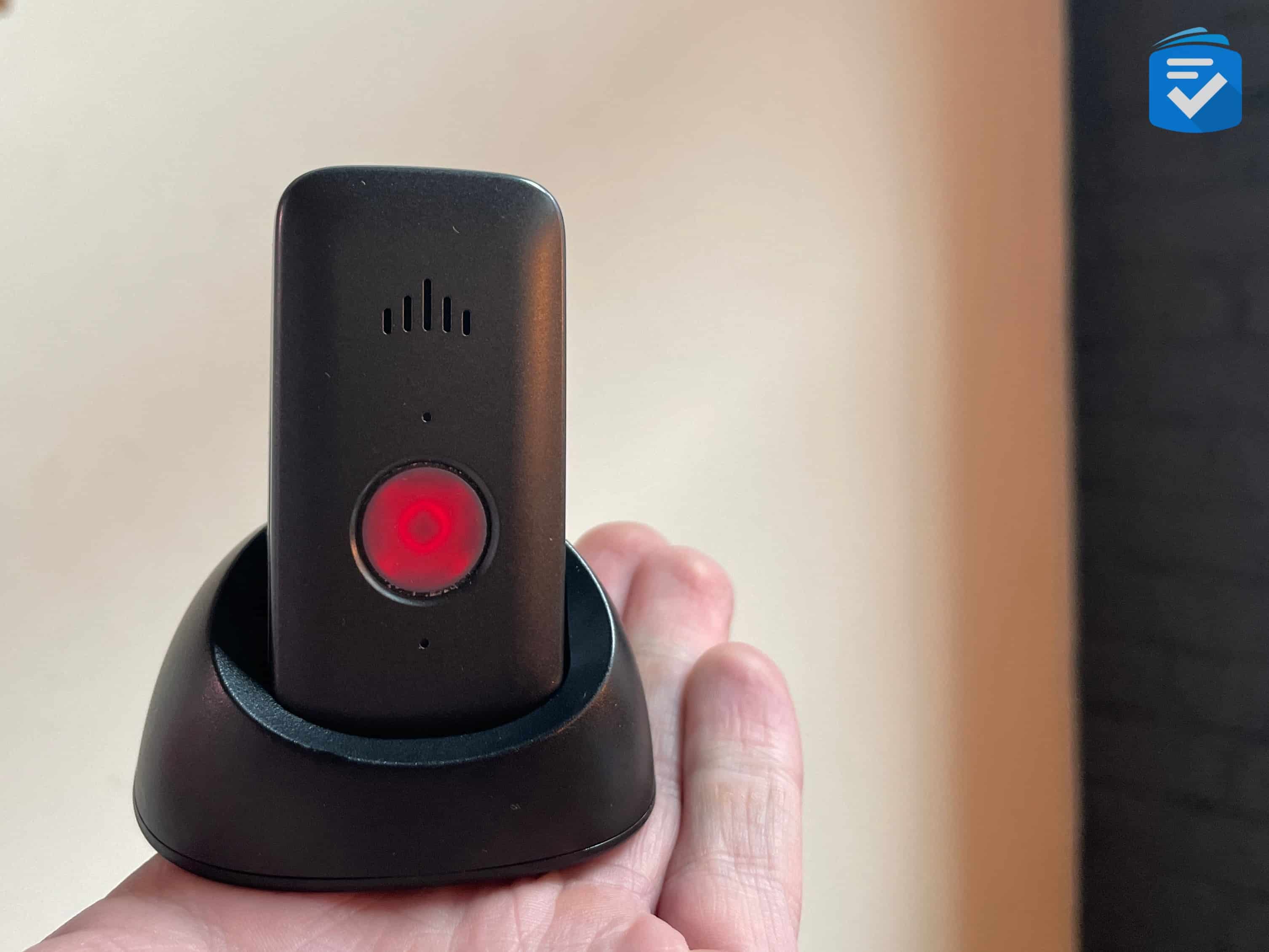
Once my device was charged, I logged onto the Medical Guardian website to activate my account. During this time, I also added a list of emergency contacts. This step is important, as it allows the Medical Guardian operators — should you press your help button — to contact family members as opposed to EMTs, in the case of a nonemergency event.
While I chose to activate my Mini Guardian online, I should note that this entire process can also be completed over the phone.

Testing My Mini Guardian

Once the Mini Guardian was live and charged, I brought the unit out into the world and began running tests. My first test, as with any medical alert system, was pressing the help button in my home. This went off without a hitch, and operators were able to answer my call in a matter of roughly 12 seconds.
My next test was to leave my apartment and run a similar test. Again, my call was answered in a matter of seconds; however, this time, I asked the operator to confirm my location, which she was able to do through both coordinates and cross streets, demonstrating the accuracy of my Mini Guardian’s GPS.
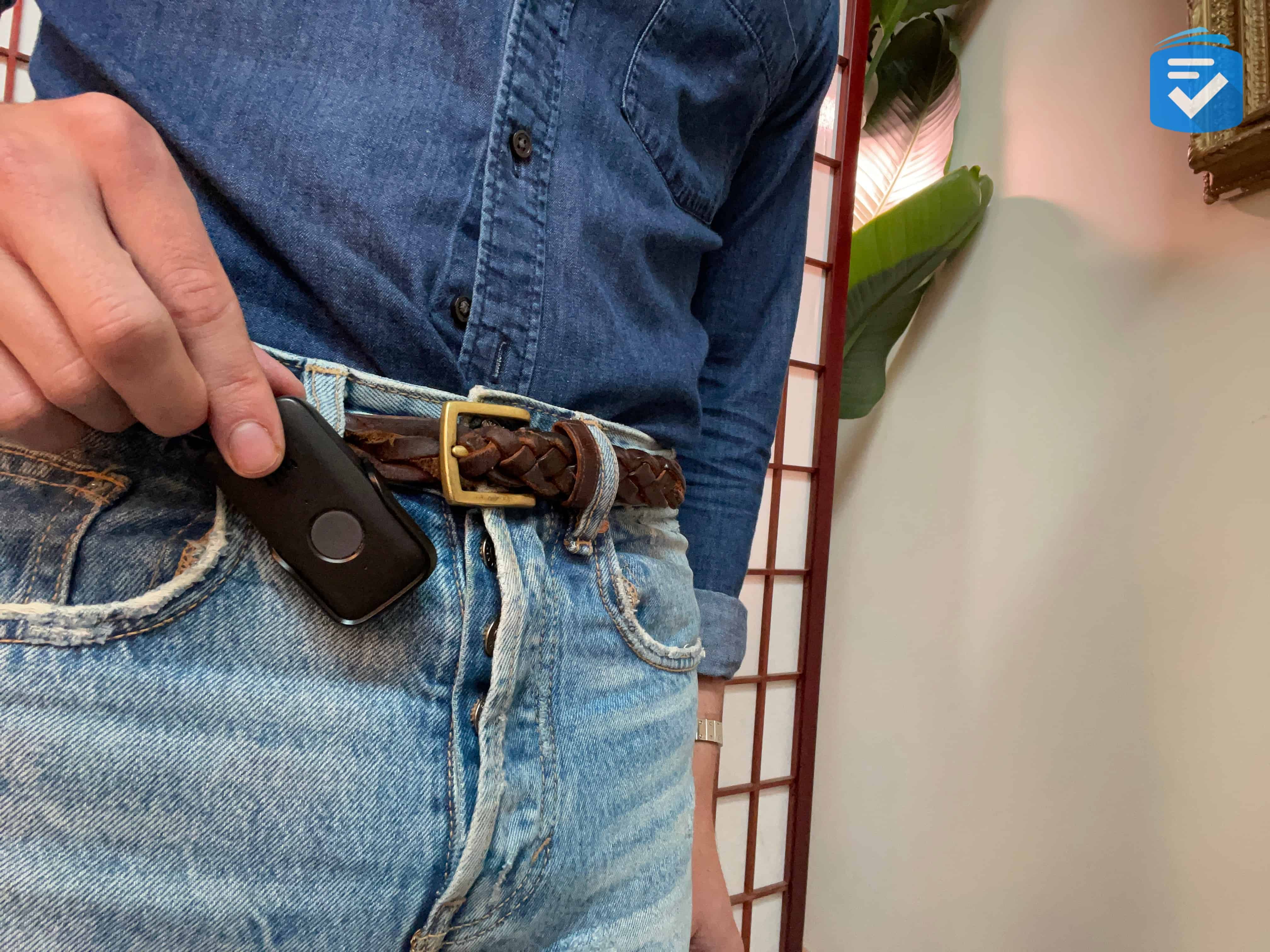
With a home medical alert system, there’s no need for location tracking, as one can assume that the user is making an emergency call from their home. When using a medical alert system with GPS, however, it’s essential for that GPS to be accurate. This way, in the event that the user places a distress call outside the home, first responders can pinpoint their location and provide help. Because the Mini Guardian runs on Verizon’s 4G network, it can go with you almost anywhere in the United States and function normally.
Over the course of my week testing the Mini Guardian, I was also impressed by its battery life. Even with daily use, the device only needed to be charged after my fifth day of testing. For mobile medical alerts, this is one of the longer battery lives I’ve seen.
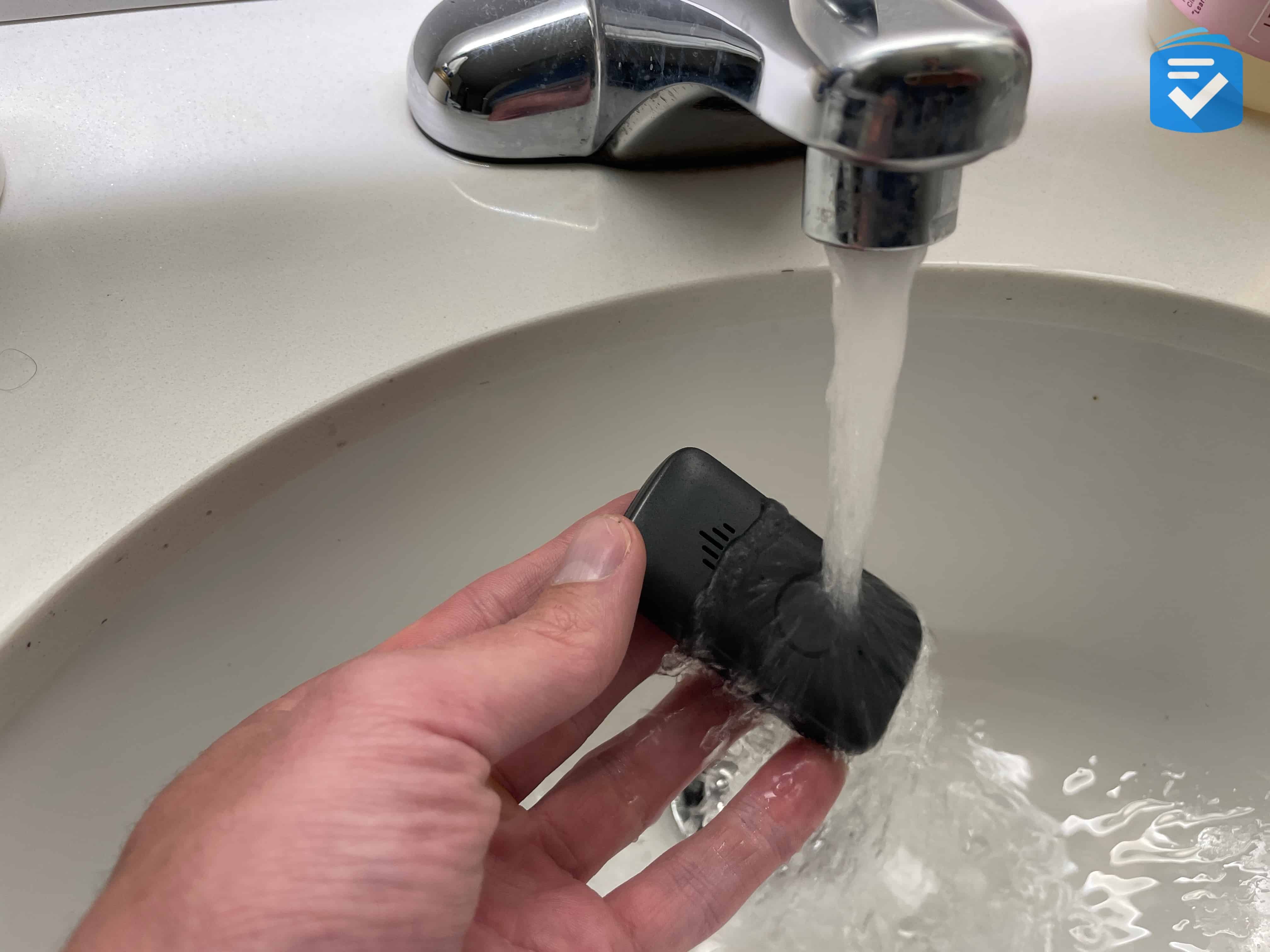
Fall Detection
Another impressive feature of the Mini Guardian was its fall detection. While many other medical alerts require additional pendants for fall detection, the Mini Guardian has this feature built into the unit.
In my tests of simulated falls, the Mini Guardian accurately detected 90 percent of falls and automatically placed calls to the Medical Guardian monitoring center. In the event that the device detects a fall, and you don’t need to contact the monitoring center — which happened several times when I dropped my unit on the ground — you can prevent a call from being placed by holding down the call button.
Fall detection with the Mini Guardian costs an additional $10 per month, and based on my tests, I think it’s a worthwhile feature.
FYI: To learn more about fall detection, read our guide to medical alerts with fall detection.
MyGuardian App
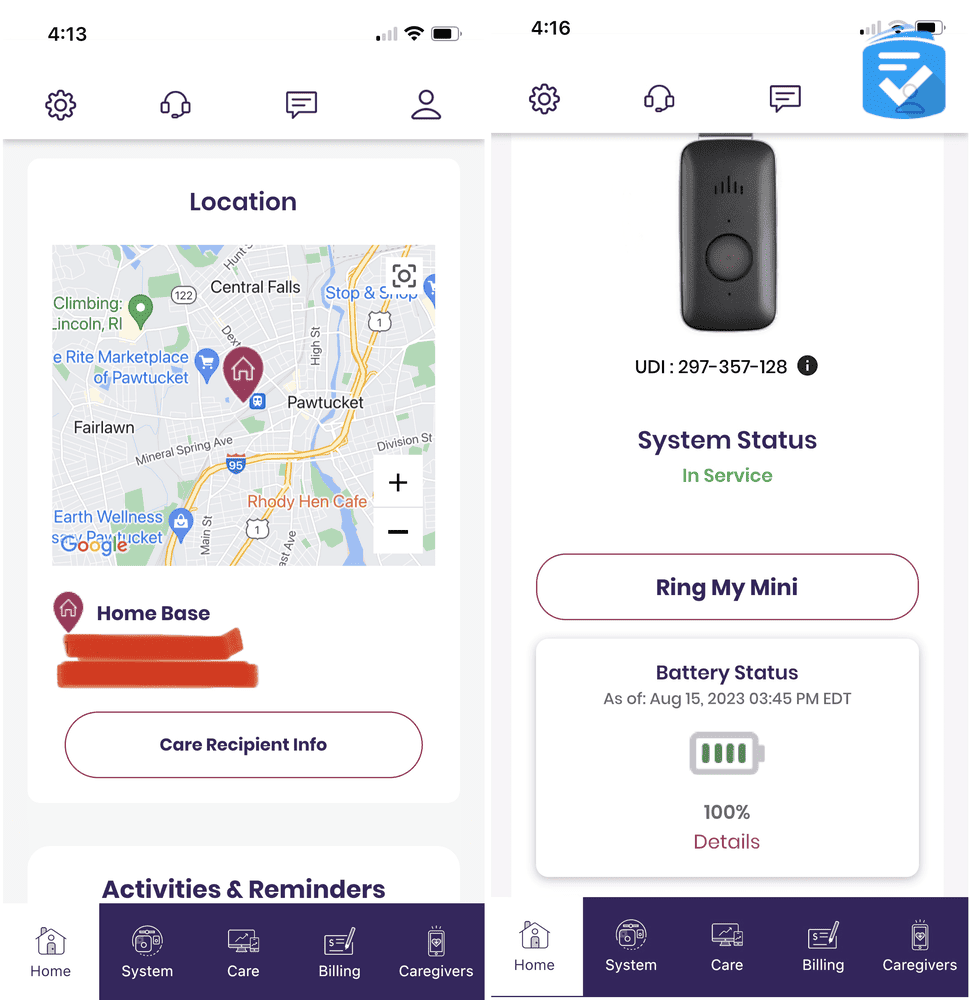
Another useful feature of the Mini Guardian was its access to the MyGuardian portal. Accessible through either a computer or smartphone app, MyGuardian allows loved ones to keep track of a Mini Guardian device.
This includes:
- Viewing a device’s location, battery life, and step counts
- “Ringing” the device — that is, triggering a sound that helps the user find a misplaced device
- Scheduling reminders
- Managing payments and extra features (fall detection, protection plans, and mobile alerts)
Mini Guardian Pricing
Medical Guardian costs tend to be middle-of-the-road when compared to other medical alert devices, with their systems starting at $31.95 per month. The Mini Guardian, however, came at a higher cost. In total, my Mini Guardian cost me $54.95 per month, including fall detection. Without this extra feature, the system would’ve cost me $44.95 per month. This is comparable to the pricing of their current lineup of mobile medical alerts.
Medical Guardian leases their systems as opposed to making you purchase them, so this price includes the device and monitoring. When I finished using my Mini Guardian, I canceled my service, returned my device, and stopped making monthly payments.
Additionally, Medical Guardian offers discounts for quarterly or annual payments. For example, a yearly Mini Guardian subscription would have cost $494.45, which comes out to $41.20 per month.
In addition to Medical Guardian’s website, Mini Guardian can also be purchased at Amazon, Best Buy, and Walmart.
Mini Guardian vs. Life Alert
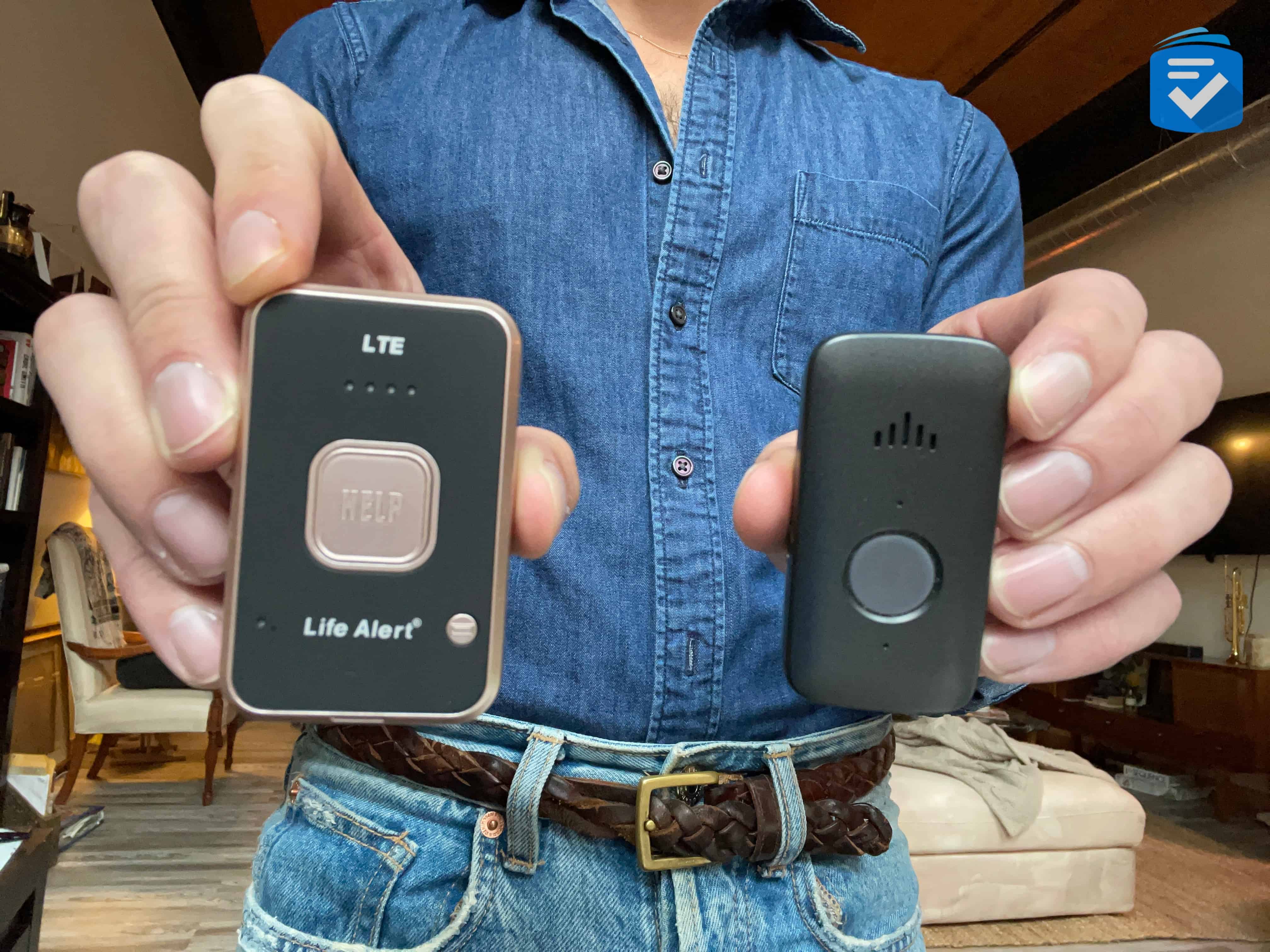
When it comes to mobile medical alerts, both the Mini Guardian and Life Alert are two popular options. Both provide quick access to help, at home or on the go; however, that’s pretty much where the similarities end.
In terms of cost, the Mini Guardian is slightly more affordable, at $44.95 per month ($54.95 with fall detection), and with no long-term contract required. Life Alert’s mobile unit costs $69.95 per month. You’ll also be locked into a three-year contract.
In terms of features, Life Alert doesn’t offer fall detection. There’s also no caregiver app or portal that allows loved ones to keep track of the device. While the GPS on Life Alert’s mobile unit works, only the monitoring agents can access a device’s location.
The one advantage of Life Alert’s mobile unit is its battery life, which can last for years. (You read that correctly, years.) Naturally, there’s no way to test this, as I’ve only had a Life Alert system for two years; however, I can say that the mobile unit still works, and in the event that the battery dies, Life Alert will replace it for free.
The Mini Guardian battery, however, lasts for roughly five days, after which time you’ll need to recharge it. Still, five days is a good battery life as far as mobile medical alerts go.
To learn more about Life Alert, read our full Life Alert review.
Compare Medical Guardian to Other Brands
Final Thoughts on Mini Guardian

In terms of mobile medical alert systems, the Mini Guardian is one of the best. Despite its incredibly small size, it packs in fall detection and an accurate GPS, making it ideal for active users.
I’d recommend Mini Guardian if you’re looking for:
- Small size: The Mini Guardian is the smallest medical alert we’ve tested, making it great for those who want an unobtrusive wearable device.
- GPS tracking: With a mobile medical alert device, GPS location tracking is essential, and the Mini Guardian delivers, accurately reporting location to both monitoring agents and those using the MyGuardian app.
- Reliable monitoring: Medical Guardian monitoring personnel responded to each of my calls within an average of eight seconds, reflecting one of the quickest response times I’ve seen from any medical alert company.
I wouldn’t recommend Mini Guardian if you want:
- Low monthly costs: Mini Guardian starts at $44.95 per month, and this price increases with the addition of the protection plan and fall detection. For more affordable options, check out my favorite cheap medical alert systems.
- No wrist option: Mini Guardian must be worn either around your neck or on the included belt clip. If you’d prefer a wrist option, then check out our Life Alert bracelet review and our list of the best medical alert bracelets.
Mini Guardian Frequently Asked Questions
-
What is Mini Guardian?
Mini Guardian is a mobile medical alert device that uses Wi-Fi, cellular, and GPS capabilities to connect you with response agents who can view your exact location and send help in the event of an emergency.
-
Is Mini Guardian waterproof?
Mini Guardian is rated IP67, meaning you can wear it in the shower, the bathtub, or even the pool, and it will continue to function properly.
-
Are there any additional fees for Verizon cellular coverage with the Mini Guardian?
No, the cost of cellular service is included with your Mini Guardian subscription.
-
How long does the Mini Guardian battery last?
In our tests, the Mini Guardian lasted four to six days on a single charge, and charging the device took roughly three hours.

